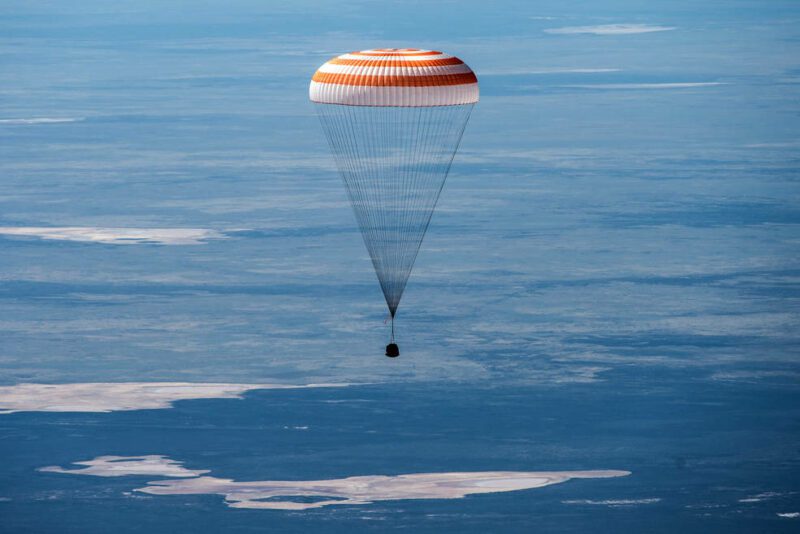One American and one Russian Astronaut returned to earth Thursday night after spending 7 months in space. The world they returned to was different than the one they left. Ground crews wearing protecting gear and face masks retrieved the two astronauts.
NASA Reports:
NASA astronauts Jessica Meir and Andrew Morgan returned to Earth Friday, along with Soyuz Commander Oleg Skripochka of the Russian space agency Roscosmos.
The trio departed the International Space Station at 9:53 p.m. EDT Thursday and made a safe, parachute-assisted landing at 1:16 a.m. Friday in Kazakhstan (11:16 a.m. local time), southeast of the remote town of Dzhezkazgan. During their first spaceflight, Morgan and Meir contributed to hundreds of experiments in biology, Earth science, human research, physical sciences and technology development.
Morgan’s nine-month mission began July 20, 2019. His 272-day flight spanned Expeditions 60-62, encompassing a total of 4,352 Earth orbits and a journey of 115.3 million miles. Morgan’s extended stay in space will increase knowledge about how the human body responds to longer-duration spaceflight, through the various investigations he supported, including the Fluid Shifts study. He also conducted seven spacewalks – totaling 45 hours and 48 minutes – four of which were to improve and extend the life of the station’s Alpha Magnetic Spectrometer as it looks for evidence of dark matter in the universe.
Meir and Skripochka, who launched on the Soyuz MS-15 spacecraft Sept. 25, 2019, spent 205 days in space, making 3,280 orbits of Earth during a trip of 86.9 million miles. During her first spaceflight, Meir conducted the first three all-woman spacewalks with crewmate Christina Koch of NASA, totaling 21 hours and 44 minutes. Among the investigations to which she contributed is a study co-led by a former colleague of hers, examining how human heart tissue functions in space. Skripochka is completing his third spaceflight for a cumulative 536 days in orbit.
After post-landing medical checks, the crew will return by Russian helicopters to the recovery staging city in Baikonur, Kazakhstan, where they will split up. Morgan and Meir will board a NASA plane located in the adjacent city of Kyzlorda, Kazakhstan, for a flight back to Houston. Skripochka will board a Gagarin Cosmonaut Training Center aircraft in Baikonur to return to his home in Star City, Russia.
Among the research experiments to which the Expedition 62 crew contributed was the Droplet Formation Study, which evaluates water droplet formation, water flow and, indirectly, the perceived pressure of current shower head technology as compared to the industry-standard use of jet nozzles. The study examines droplet size and speed and how they affect the feeling of increased pressure for the end user. Another experiment to which the crew contributed was Mochii, a miniature scanning electron microscope used to conduct real-time, on-site imaging and composition measurements of particles. Analysis of small and microscopic particles is a critical need for human space exploration beyond low-Earth orbit when samples cannot be returned to Earth immediately for analysis.
When the Soyuz MS-15 spacecraft with Meir, Morgan and Skripochka departed, Expedition 63 officially began aboard the station, with NASA astronaut Chris Cassidy serving as station commander and Roscosmos’ Anatoly Ivanishin and Ivan Vagner serving as flight engineers.
The crew members of Expedition 63 are scheduled to be aboard the station to welcome NASA astronauts Robert Behnken and Douglas Hurley, the first astronauts to launch from American soil to the space station since 2011, on NASA’s upcoming SpaceX Demo-2 flight test.
